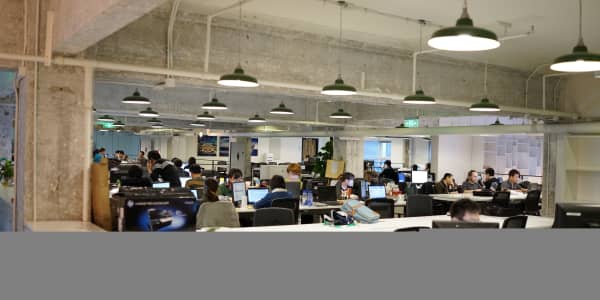The economic boom in Asia over the past two decades has inspired people to take risks, develop new businesses and tread on unbeaten paths. But as these entrepreneurs set about to do something different in an attempt to capitalize on their region's unprecedented prosperity, they stumbled and fell only to rise again and go on to be successful.
Some of these risk takers spoke to CNBC sharing the mistakes they made and the lessons they learnt. From expanding too soon, to refusing to take advice to failing to recognize market dynamics, many start-ups fall prey to the same mistakes.
(Read More: What Are Asian Entrepreneurs Afraid of?)
Too Much Too Soon
Sometimes an entrepreneur's risk-taking ability, the very essence of an entrepreneurial spirit, can lead to mistakes.
Terence Swee, who founded video editing software company Muvee.com in 2001, says if he had the chance to go back and do things differently, he would not have gone "too big too soon."
Swee who spends his time between San Francisco and Singapore told CNBC: "Looking back, I think we might have gone a little too big and tried to offer the service for everyone rather than focusing on one specific area, without the right level of funds or experience."
(Read More: 10 Best States for Starting a Business)
Swee targeted a global audience from day one, launching his business in the U.S., France, Germany, the U.K., Spain and Italy in the first month. However, looking back he says it might have been more effective to target one specific market, achieve a dominant market share there before moving on to the next.
"Right now we are well-known across all area and regions, but while we can say we are the 'go-to application' for wedding videos, for example, in some regions, we can't say that for every Southeast Asian market," added Swee.
Think Local
An important lesson many start-ups have learnt is that in Asia each country requires a unique approach and "on the ground knowledge" is invaluable.
(Watch Now: The Next Game-Changing Entrepreneur?)
"People talk about entrepreneurship in Asia as if the same rules apply across the region, but that is not the case, even in Southeast Asia, for example, there is a lot of diversity," said Willson Cuaca of Indonesia's digital newsstand SCOOP (Getscoop.com), who launched the website which offers digital versions of magazines and newspapers in 2010. He has now grown the business to offer over 500 titles in nine different countries.
"Southeast Asia as a whole has population of 600 million, but it is very fragmented in terms of regulation, cultural issues and infrastructure. So you have to penetrate one market at a time and deploy different business strategies," he added.
Ask for Help
Damien Duhamel, managing partner of Singapore-based marketing consultancy Solidiance, which counts many Fortune 500 companies among its clients, said Asian entrepreneurs are not always happy to reach out for help because they fear "losing face."
"Too many Singaporeans, and particularly Chinese people, rely on their 'quanxi'[Chinese word meaning close network of friends and family]. But in the 21st century this is no longer enough, most Singaporeans don't recognize this," he said.
Stick to Your Core Concept
Others said veering too far from the original concept of your business can be a key mistake. Richard Eu, CEO of Singapore-based traditional Chinese medicine brand Eu Yan Sang, has transformed his family business from a six-store operation to a multi-national brand with 219 stores and 29 clinics across Asia, over the past 20 or so years.
The key to his success, according to Eu, is that he stuck to his core business while taking it to another level, which is transforming the image of Chinese medicine to one that is a modern and natural healthcare option.
(Watch Now: China's Warren Buffett: We're His 'Apprentices')
"The main reason businesses are successful is because they stick to the concept at their core, the concept that captured the imagination of your customers," he said. "Entrepreneurs should know their core competencies and stick to them," he added.
People Power
Not hiring the right people can also prove to be a critical stumbling block for entrepreneurs who often struggle to find staff with the same level of passion and commitment that they themselves have.
Liew Kee Sin, president and CEO of Malaysian property firm SP Setia, said one of the most common mistakes entrepreneurs make is hiring too many "yes men."
He advised entrepreneurs to hire people who have the confidence to question their decisions.
"The key point here is to make sure I have a strong team behind me, one that will say, 'Sir, you're wrong, this will work against you'," he said.





